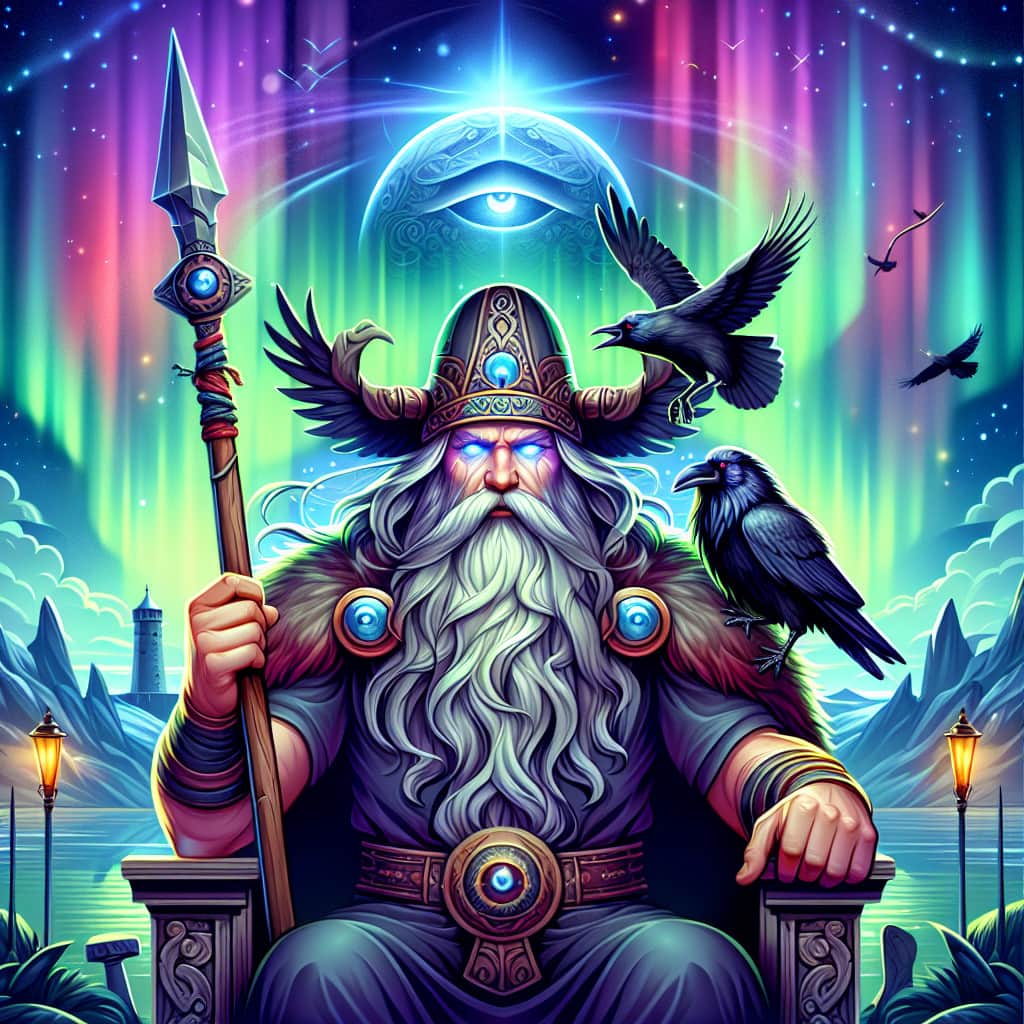Odin is one of the most powerful and well-known gods in Norse mythology. He is often called the All-Father, as he is the father of all gods and goddesses in the pantheon. Odin is known for his many magical powers, his wisdom and his willingness to sacrifice himself to gain knowledge. He is also known as a god of war and as a god of death. In this article, we will take a closer look at the pagan god Odin and explore his history, powers, and role in Norse mythology.

Odin is one of the most important gods in Norse mythology. He is known as the All-Father, the ruler of Asgard and the ruler of the Aesir, the pantheon of gods in Norse mythology. Odin is a complex figure, with many aspects, and his character and role in the Norse pantheon are still being debated by scholars.
Who is Odin?
Odin is a god in Norse mythology. He is the king of the Aesir, the pantheon of gods in Norse mythology, and the ruler of Asgard, the realm of the gods. He is often portrayed as a wise, powerful, and mysterious figure, with a wide range of powers. Odin is associated with war, death, wisdom, and magic. He is also associated with the runes, the pre-Christian alphabet used by the Norse people to communicate with the gods.
What Are Odin’s Powers?
Odin is a powerful god with a wide range of powers. He is associated with wisdom, war, death, magic, and the runes. He is also associated with victory in battle, and is said to be able to grant victory to those who are worthy. He is also said to be able to grant second sight, or the ability to see into the future.
What Are Odin’s Symbols and Attributes?
Odin is often depicted as a tall, imposing figure wearing a pointed hat and a long cloak. He is often accompanied by two ravens, Hugin and Munin, who are said to bring him news from all over the world. He is also often seen accompanied by his faithful wolves, Freki and Geri. He is often portrayed as carrying a spear, Gungnir, which is said to never miss its mark. He is also associated with the Valknut, a symbol of death and the afterlife.
What Are Odin’s Roles in Norse Mythology?
In Norse mythology, Odin is the ruler of the Aesir, the pantheon of gods in Norse mythology. He is the All-Father, the creator and protector of the gods. He is a god of war and death, and is said to have the power to grant victory in battle to those who are worthy. He is also a god of wisdom and magic, and is said to have given the runes, the pre-Christian alphabet used by the Norse people to communicate with the gods, to the world. He is also associated with the afterlife, and is said to be able to grant those who are worthy a place in Valhalla, the realm of the dead in Norse mythology.
What Are Odin’s Other Roles?
Odin is often seen as a trickster figure in Norse mythology, using his cunning and wit to manipulate or deceive others. He is also said to have the power to shapeshift, taking the form of animals or other creatures. He is also said to have the power to travel between the nine worlds, and to travel to the underworld. He is also said to have the power to grant second sight, or the ability to see into the future.
Conclusion
Odin is one of the most important figures in Norse mythology. He is a complex and multi-faceted figure, with many aspects and roles. He is the All-Father, the ruler of the Aesir and the ruler of Asgard. He is associated with war, death, wisdom, magic, and the runes. He is also a trickster figure, and is said to have the power to shapeshift and to travel between the nine worlds. He is also said to have the power to grant victory in battle and to grant second sight. He is an important figure in Norse mythology, and his role in the pantheon is still being debated by scholars.
Odin is a powerful and influential figure in Norse mythology. He is the god of wisdom, war, death, and knowledge, as well as a major figure in Norse mythology. Odin is both revered and feared by his people, and his influence is still felt in modern culture. He is a symbol of strength, courage, and wisdom, and his legacy lives on in the stories and symbols of the Norse people. Odin is a reminder of the power of mythology and how it can shape our understanding of the world. Odin’s legacy is one that continues to inspire us to this day, and his importance in Norse culture is undeniable.





